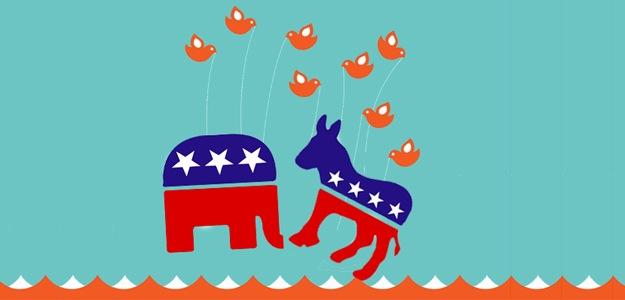 When it comes to successfully using social media during the upcoming US Presidential Elections, the key word is, apparently, “positivity.”
When it comes to successfully using social media during the upcoming US Presidential Elections, the key word is, apparently, “positivity.”
That may seem somewhat counter-intuitive considering the increasingly-negative campaigns on both sides of the political divide, what with birther references and third-party tax avoidance allegations, but it was one of the key take-aways from a briefing held at this morning’s Republican National Convention in Tampa, Florida, sponsored by the National Journal.
Appearing at the panel were representatives from Twitter, Facebook and Google Politics, in addition to the digital director of the Romney campaign, Zac Moffat, with the National Journal‘s Major CGarrett and CBS Morning News‘ Norah O’Donnell acting as moderators. Under discussion, the state of the political race in terms of digital outreach, and the ways in which the traditional narratives about political campaigning online aren’t necessarily true in today’s social media. For example, the importance of followers or fans is overstated, the panel agreed; instead, what truly counts of the amount of engagement the campaign has with those people. “It doesn’t matter how many people are following you if they’re not engaging,” said Moffat, going on to say that “success” is measured in the Romney campaign by the number of people talking about or sharing a particular topic at any one time.
(For what it’s worth, it’s estimated that the amount of tweets discussing Romney and Obama are expected to reach a comparable level within the next few weeks; currently, the President has the edge, but it’s changing rapidly. A few months ago, Obama was leading Romney in terms of Twitter chatter by a factor of four to one, despite the Republican primaries making news for the presumptive nominee. Clearly, Romney must be doing something right.)
Of course, that metric is also somewhat flawed; Twitter’s Adam Sharp pointed out that more tweets had been sent about this year’s Republican National Convention before today’s opening than had been sent about the convention during its entire length in 2008, pointing out that there’s just been a general uptick in conversation around political topics – indeed, all topics on Twitter since the last presidential election.
Overall, Sharp said, the messages that get the most retweets and generate the highest amount of discussion on Twitter are positive ones, and not messages drawing attention to the shortcomings or disagreeable policies of opponents. Whether or not that will continue to be the case as the race continues and doubtless becomes more argumentative in person remains to be seen; after all, as Sharp added, the tone of conversation between partisan onlookers is affected by that of the elected officials that they follow. There’s a pointer to the future of political conversation in general, I suspect. If campaigns want more respectful campaigns, they’ll have to lead by example…


